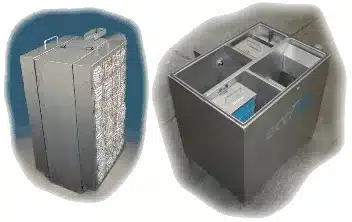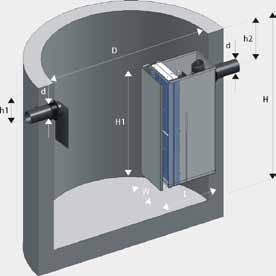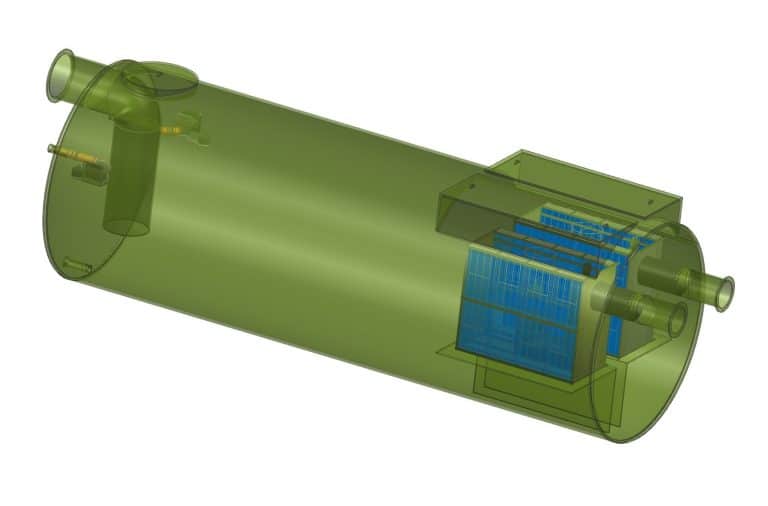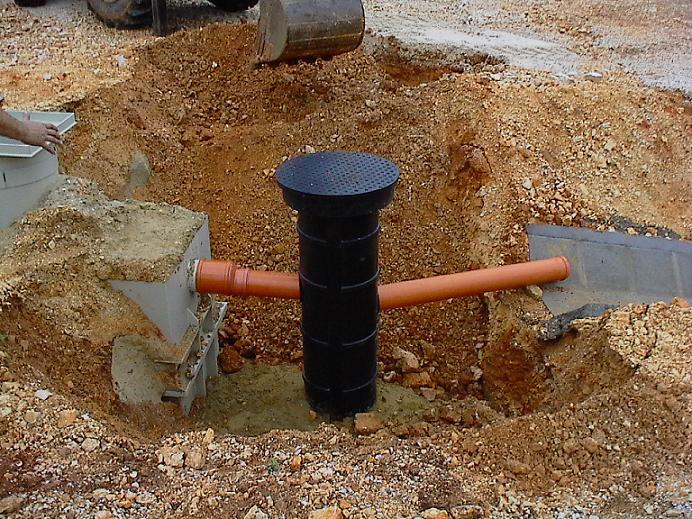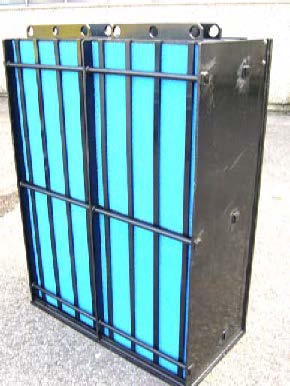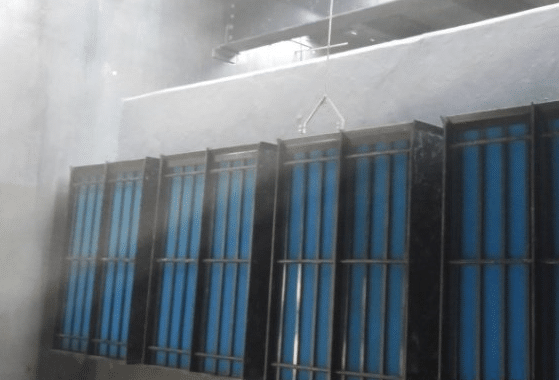Have you ever thought about the hidden protectors of Louisiana’s waterways from oil pollution? Below ground oil water separators (OWS) are these unsung heroes. They work hard under our feet. These systems are key to Louisiana’s oil and gas setup, facing the state’s environmental challenges.
Louisiana Below Ground OWS technology leads in fighting the Gulf of Mexico Dead Zone and nutrient runoff. These systems separate oil and other pollutants from water. This ensures they meet strict environmental laws and protect Louisiana’s sensitive ecosystems.
Underground pipelines spread across the state, and Below Ground Oil Water Separators quietly manage and treat wastewater. This smart way of treating water is crucial. It helps keep Louisiana’s oil and gas industry thriving while preserving its natural beauty.
Key Takeaways
- Freytech Inc. Louisiana Below Ground OWS protects waterways from oil pollution
- These systems are crucial for oil and gas infrastructure
- Below Ground Oil Water Separators combat the Gulf of Mexico Dead Zone
- OWS technology ensures compliance with environmental regulations
- Underground pipelines benefit from advanced wastewater treatment
- Louisiana’s ecosystems are safeguarded by innovative OWS solutions
Understanding Louisiana’s Unique Environmental Challenges
Louisiana faces special environmental issues that affect its ecosystems and economy. These problems need new solutions in managing subsurface utilities, mapping pipelines, and keeping pipelines safe. This helps protect the state’s natural resources.
The Gulf of Mexico Dead Zone
The Gulf of Mexico Dead Zone is a low-oxygen area off Louisiana’s coast. It happens when too many nutrients from the Mississippi River make algae grow too much, taking oxygen from the water. This forces marine life to move or die, upsetting the balance of the ecosystem.
Nutrient Runoff and Its Impact
Agriculture in the Mississippi River Basin leads to nutrient runoff. This runoff affects subsurface utilities and pipelines, making it important to map pipelines well for the environment. The extra nutrients cause water quality problems and coastal erosion, which is hard on Louisiana’s infrastructure.
Louisiana’s Role in Addressing Water Quality Issues
Louisiana is working hard to solve water quality issues with its nutrient reduction strategy. This includes moving rivers to build coastal wetlands that filter out nutrients. The state’s work on keeping pipelines safe and maintaining subsurface utilities is key to keeping water clean and protecting the environment.
Louisiana Below Ground OWS: Innovative Technology for Oil-Water Separation
Louisiana’s oil industry has a big challenge with water management. The state uses advanced below ground oil-water separation (OWS) systems. These systems remove oil, grease, and sand from water before it goes into public sewers.
OWS systems have different designs for various needs. Precast concrete interceptors have many compartments and baffles. They use coalescing media to separate oil from water well. Some models also have maintenance alert systems for timely upkeep.
For places where weight is a big issue, fiberglass models are a great choice. Steel basins are another option for certain installations. These systems are key for industries like car washes that make oily wastewater.
Installing OWS technology often uses directional drilling and trenchless technology. These methods cause little disruption on the surface. It’s important to use utility locating services to avoid damaging underground pipes during installation.
Louisiana’s use of advanced OWS technology shows its dedication to protecting the environment. These systems separate oil from water well. This helps keep the state’s water clean and follows strict environmental laws.
Freytech Inc.’s Enhanced Coalescing Technology
Freytech Inc. is leading the way in Louisiana’s oil and gas sector with its advanced coalescing technology. This technology changes the game in oil-water separation, tackling the region’s unique challenges. The Below Ground OWS systems from Freytech are top-notch, perfect for horizontal directional drilling (HDD) projects.
Achieving 5 PPM Separation Efficiency
Freytech’s tech goes beyond what’s standard, hitting a 5 PPM separation efficiency. This beats the North American limit of 10 PPM, leading to cleaner water and better environmental care. The Below Ground OWS systems are key in following strict rules.
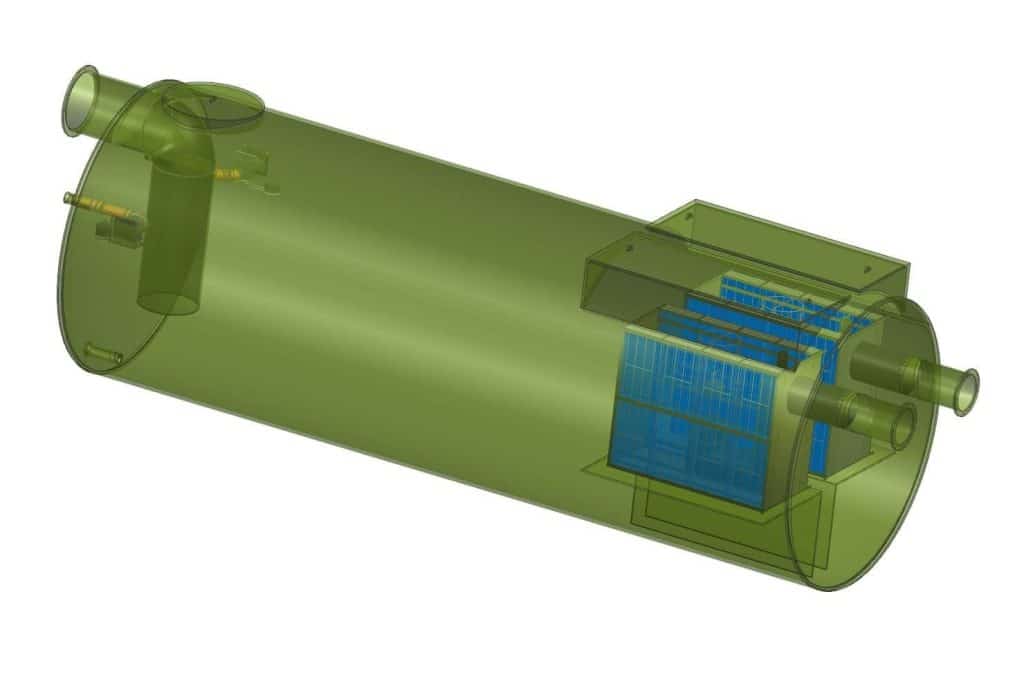
Tackling Emulsified Oil with 0.1 PPM Efficiency
When it comes to emulsified oil, Freytech’s tech shines with a 0.1 PPM separation rate. This is vital for HDD projects, where emulsified oil is a big problem. The coalescing tech gets rid of tiny oil droplets, making the water clean.
Versatility in Hydrocarbon Separation
Freytech’s separators can handle a variety of hydrocarbons. They work well with motor oil, diesel, gasoline, and jet fuel, among others. This makes Freytech’s technology a must-have for Louisiana’s oil and gas sector. It offers efficient and rule-following wastewater treatment solutions for all kinds of projects.
Regulatory Compliance and Environmental Protection
In North America, there are strict rules for hydrocarbon discharge. The limit is set at 10 Parts per Million (10 PPM). This ensures industries, including those using Below Ground Oil Water Separators, keep water clean.
Louisiana’s Approach to Nutrient Reduction
Louisiana has a special plan to deal with nutrient runoff. The state uses river diversions to build and keep coastal wetlands. These wetlands act as natural filters, taking out excess nutrients from water.
This method helps protect infrastructure and the environment. It’s part of managing pipeline integrity.
The Clean Water Act’s Role
The Clean Water Act is key in keeping water safe. It stops pollution at its source. This law affects how industries work, including those using Below Ground Oil Water Separators.
It makes sure companies focus on protecting water in their operations.
Collaborative Efforts for Water Quality
Groups like the National Wildlife Federation and Environmental Defense Fund work together across the Mississippi River Basin. They team up with farmers to cut down on fertilizer runoff. These groups also push for policies that protect coastal habitats.
Their efforts support using Below Ground Oil Water Separators and good pipeline management practices.
These separators are crucial in storm water systems. They process runoff to meet the US EPA’s Clean Water Act standards. With effective oily water treatment, facilities protect the environment and dodge big fines.

